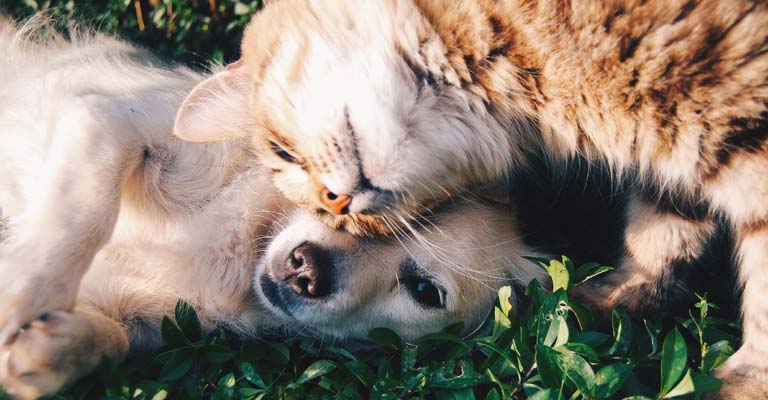Who Keeps Pets After a Divorce?
The breakdown of a de facto or marital relationship affects all members of the family unit - including any furry four-legged friends. One rarely foreseen source of heartache for separating couples is disagreement as to who gets to keep the pet (or pets). The law in Australia is relatively underdeveloped when it comes to arrangements concerning custody and care of pets following separation or divorce, and this can make things even trickier. Fortunately, there are options available to reach a resolution, in or out of court.

How does the law treat pets?
In the context of divorce settlements, pets are treated as personal property. This is stipulated in the Companion Animals Act of 1998 (NSW) - that in legal proceedings, companion animals like dogs are regarded as property.
Of course, unlike liquid (financial) assets, a dog, cat or horse cannot be divided neatly in half – or, for that matter, into whatever proportions reflect each spouse’s contributions to its maintenance.
Nor, in most cases, is it satisfactory to simply attach a price tag to the pet. Needless to say, equitable distribution is a lot less simple in respect of pets, especially since both parties may have a strong emotional attachment to the “asset” in question.
If we look at the Family Law Act 1975, we do not see any specific mention of pets. However, seeing as though pets are defined as "property", the Family Law Act gives a lot of direction as to how property is divided on separation and divorce.
Where the parties are unable to reach agreement as to which of them gets to keep an animal which is regarded as shared property of the marriage, the court will generally seek to determine which party has a better claim to ownership of the animal.
Where appropriate, the court will weigh up the following factors:
- who purchased the pet or received it as a gift;
- who looks after the pet most of the time;
- where pet insurance is paid, who pays it;
- whose name the pet is registered in;
- the welfare of the pet;
- any mistreatment or harm caused to the pet by a party;
- which spouse has the greater means to care for the pet (in terms of time and financial resources).
The court, having taken these factors into account, will then make an order that one party retain the pet – just as it would with other personal property, like furniture or the family car.
In terms of pet custody and living arrangements, what needs to be considered and what options are available?
Separating couples might wish to avoid an outcome whereby one party keeps the pet to the exclusion of the other.
In such a case, they may wish to explore different arrangements in terms of living, custody, maintenance, and visitation.
Naturally, in order to develop an arrangement that best fits the parties’ (and the pet’s) needs and circumstances, the following should be considered:
- the desirability and practicability of both partners remaining involved;
- the best interests of any children of the relationship (including their continued contact with the pet);
- the suitability of new residences for the housing of pets;
- the commitment (in terms of time and money) to caring for the pet and how this might be shared;
- general decision-making regarding the pet’s health and well-being (including visits to the vet and grooming);
- the potential impact of any significant changes, such as disruption of routine, on the pet.
Having discussed these matters, the parties might be able to negotiate and create a pet visitation schedule – for instance, providing for the pet/s to travel between residences and stay with each party for a certain period.
A best case scenario could be where the parties are able to come to an agreement with regard to sharing the costs of and contact with the pet.
If agreement cannot be reached informally, or the parties desire something a little more robust or legally enforceable, there is the option of entering into a binding financial agreement (BFA) before or during the marriage.
This is an agreement (sometimes referred to as a “prenup”) whereby the parties predetermine how their property will be split in the event of separation. A BFA may include provision for pets.
The obvious limitation of this option is that it is not available once the relationship or marriage has already dissolved and the parties are asserting their rights without the existing framework of any such binding agreement to fall back on.
Once the relationship approaches that stage and agreement is elusive, an application for property orders (as discussed above, where the court makes the decision for the parties) may be the only viable option.
In sum, in order to improve your prospects of keeping the family pet upon separation, the following measures should be considered:
- ensuring that any pets are registered in your name prior to separation;
- retaining evidence (such as receipts) of payments made in connection with the pet’s care and maintenance;
- entering into a BFA.
Key takeaways
- In divorce settlements, pets are treated as personal assets.
- The court will make orders in favour of the party with the greater claim to ownership of the pet.
- Where agreement and cooperation is possible, separating partners may wish to explore different pet living and custody arrangements, both formal and informal.
Knowing what to expect and what will happen to your pets in the wake of divorce can be difficult – but there are many options available, as well as ways to secure a good outcome for you and your pets. Importantly, separation from your partner need not mean separation from your beloved furry companion.
For further advice and information, don't hesitate to contact us. Our team of family lawyers is here to help.


